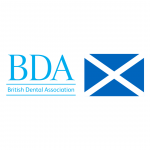The past year has been a particularly hard time for patients, and no less hard on their teeth. While vaccination efforts are well under way, and the end is hopefully in sight, the scars of the pandemic will be felt for years to come.
One key area of concern is mental health. Stigma around mental health concerns has improved in recent years, leading more people to seek the help they need. However, even before the pandemic began, accessing already overstretched mental health resources and services was far from ideal for many. The pandemic has been a double blow, increasing the environmental stresses people are under (loneliness, economic hardship, bereavement, etc.) while simultaneously putting more pressure on services directly with minimised contact and reduced staff availability.[1]
At present, research suggests that around two-thirds of patients diagnosed with mental illness have to wait more than a month from their initial assessment to get a second appointment. For a quarter of patients that wait extends to more than three months, and one-in-nine are left waiting for more than half a year. Delays in treating mental health are dangerous and damaging to patients, and can lead to dire consequences – with one-in-nine patients left waiting for mental health treatment ending up in A&E. Right now, there are patients with eating disorders, PTSD, depression, bipolar disorder, anxiety and gender identity disorders who have been left waiting for multiple years without treatment.[2] This is after patients take the steps to seek treatment, which itself can be a personal battle.
Mental health issues have systemic effects on other aspects of a patient’s life and health, which can easily tip into a vicious circle. Deteriorating mental health can lead to problems keeping or seeking work, which can lead to financial problems, and so on – all of which reduce quality of life and create additional psychological stress. The longer mental health issues go untreated, the greater the chances of further harm, and worsening circumstances for the patient.[3]
It is anticipated that some of the hardest hit by this pandemic will be fellow healthcare providers. For those in frontline care, which is already a demanding profession, the preceding year has created breaking point conditions with little to no reprieve. According to research conducted by King’s College London, around 40% of intensive care unit staff in England have PTSD symptoms, while 6.3% may have severe depression, and 11.3% show signs of severe anxiety. This research was conducted between June and July 2020, before the winter wave hit. Elsewhere, the British Medical Association reports that 60% of doctors in England and Wales are suffering with anxiety or depression.[4] While those in frontline healthcare may be among the hardest hit, evidence suggests that many more people from all walks of life have been deeply affected.[5]
Psychological distress can adversely affect patients’ oral health in a multitude of ways. Regurgitation, which can be a recurrent symptom of eating and anxiety disorders, can rapidly damage dental enamel. Even where vomiting is infrequent or not present, these and other mental health disorders are associated with higher levels of dental erosion, and worse periodontal health than in patients without these conditions.[6],[7],[8],[9]

Bruxism has a complex aetiology that is still not fully understood, but it has been associated with stress, sleep pattern disturbances and mental illness.[10] Bruxism varies dramatically between patients: duration, frequency and force can all be quite different, so some patients see little damage while others experience major problems, with severe cases causing occlusal load to be anywhere from 2-10 times higher than in non-bruxers.[11] Bruxism can be highly damaging to teeth, cause dental implants to fail, and is associated with temporomandibular disorders.[12],[13] Bruxism is also linked to gastro-oesophageal reflux disease (GORD) and when present together, the conditions can aggravate each other leading to severe tooth wear and erosion.[14] Other sources of acid (for instance dietary), can soften the enamel increasing the risk of damage from bruxism and other processes.[15]
These are difficult challenges to resolve, but to give teeth a fighting chance, patients should be encouraged to brush twice a day with a fluoride toothpaste such as Arm & Hammer™ Enamel Repair™. Featuring Liquid Calcium™ technology, this toothpaste has been specially engineered to help restore surface enamel by filling in micro cracks and crevices. Help your patients remineralise and strengthen their teeth by recommending a quality toothpaste.
Mental health problems are not quickly or easily resolved, and the pandemic has created a perfect storm of circumstances that have made things very challenging for countless patients. During this time, it is important to support patients in maintaining the rest of their systemic health, including helping mitigate and repair damage done to their teeth.
For more information about the carefully formulated Arm & Hammer™ toothpaste range, please visit http://www.armandhammer.co.uk/
or email: ukenquiries@churchdwight.com
Arm & Hammer™ oral healthcare products are available in-store and online at Boots, Superdrug, Sainsbury’s, Tesco, Asda and Morrisons throughout the UK.
Author
Maxwell O’Neill, professional educator for Waterpik
[1] Johnson S., Dalton-Locke C., Juan N., Foye U., Oram S., Papamichail A., Landau S., Olive R., Jeynes T., Shah P., Rains L., Lloyd-Evans B., Carr S., Killaspy H., Gillard S., Simpson A. & The COVID-19 Mental Health Policy Research Unit Group. Impact on mental health care and on mental service users of the COVID-19 pandemic: a mixed methods survey of UK mental health care staff. Social Psychiatry and Psychiatric Epidemiology. 2021; 56: 25-37. https://doi.org/10.1007/s00127-020-01927-4 April 12, 2021.
[2] Royal College of Psychiatrists. Two-fifths of patients waiting for mental health treatment forced to resort to emergency or crisis services. Royal College of Psychiatrists. 2020. https://www.rcpsych.ac.uk/news-and-features/latest-news/detail/2020/10/06/two-fifths-of-patients-waiting-for-mental-health-treatment-forced-to-resort-to-emergency-or-crisis-services April 12, 2021.
[3] Reichert A., Jacobs R. The impact of waiting time on patient outcomes: evidence from early intervention in psychosis services in England. Health Economics. 2018; 27(11): 1772-1787. https://www.ncbi.nlm.nih.gov/pmc/articles/PMC6221005/ April 12, 2021.
[4] Mahase E. Covid-19: many ICU staff in England report symptoms of PTSD, severe depression, or anxiety study reports. BMJ. 2021; 372: 108. https://doi.org/10.1136/bmj.n108 April 13, 2021.
[5] Royal College of Psychiatrists. Country in the grip of a mental health crisis with children worst affects, new analysis finds. Royal College of Psychiatrists. 2021. https://www.rcpsych.ac.uk/news-and-features/latest-news/detail/2021/04/08/country-in-the-grip-of-a-mental-health-crisis-with-children-worst-affected-new-analysis-finds April 13, 2021.
[6] Dynesen A., Gehrt C., Klinker S., Christensen L. Eating disorders: experiences of and attitudes toward oral health and oral health behavior. European Journal of Oral Sciences. 2018; 126(6): 500-506. https://doi.org/10.1111/eos.12578 April 12, 2021,
[7] Pallier A., Karimova A., Boillot A., Colon P., Ringuenet D., Bouchard P., Rangé H. Dental and periodontal health in adults with eating disorders: a case-control study. Journal of Dentistry. 2019; 84: 55-59. https://doi.org/10.1016/j.jdent.2019.03.005 April 12, 2021.
[8] Radeef A., Faisal G. Assessment of depression, anxiety and stress symptoms among patients with periodontal disease. Journal of International Dental and Medical Research. 2017; 10(2): 260-264. http://www.jidmr.com/journal/wp-content/uploads/2017/05/12_D17_376_Ghassak_Ghazi_Faisal.pdf April 12, 2021.
[9] Zheng D., Kang X., Wang Y., Huang Y., Pang C., Chen Y., Kuang Z., Peng Y. Periodontal disease and emotional disorders: a meta-analysis. 2021; 48(2): 180-204. https://doi.org/10.1111/jcpe.13395 April 12, 2021.
[10] Saczuk K., Lapinska B., Wilmont P., Pawlak L., Lukomska-Szymanska M. Relationship between sleep bruxism, perceived stress, and coping strategies. International Journal of Environmental Research and Public Health. 2019; 16(17): 3193. https://doi.org/10.3390/ijerph16173193 April 12, 2021.
[11] Wu Y., Arsecularatne J., Hoffman M. Attrition-corrosion of human dental enamel: a review. Biosurface and Biotribology. 2017; 3(4): 196-210. https://doi.org/10.1016/j.bsbt.2017.12.001 April 12, 2021.
[12] Bucci C., Amato M., Zingone F., Caggiano M., Iovino P., Ciacci C. Prevalence of sleep bruxism in IBD patients and its correlation to other dental disorders and quality of life. Gastroenterology Research and Practice. 2018; 7274318. https://doi.org/10.1155/2018/7274318 April 12, 2021.
[13] Zhou Y., Gao J., Luo L., Wang Y. Does bruxism contribute to dental implant failure? A systematic review and meta-analysis. Clinical Implant Dentistry and Related Research. 2016; 18(2): 410-420. https://doi.org/10.1111/cid.12300 April 13, 2021.
[14] Li Y., Yu F., Niu L., Hu W., Long Y., Tay F., Chen J. Associations among bruxism, gastroesophageal reflux disease, and tooth wear. Journal of Clinical Medicine. 2018; 7(11): 417. https://doi.org/10.3390/jcm7110417 April 12, 2021.
[15] Wu Y., Arsecularatne J., Hoffman M. Attrition-corrosion of human dental enamel: a review. Biosurface and Biotribology. 2017; 3(4): 196-210. https://doi.org/10.1016/j.bsbt.2017.12.001 April 12, 2021.
















